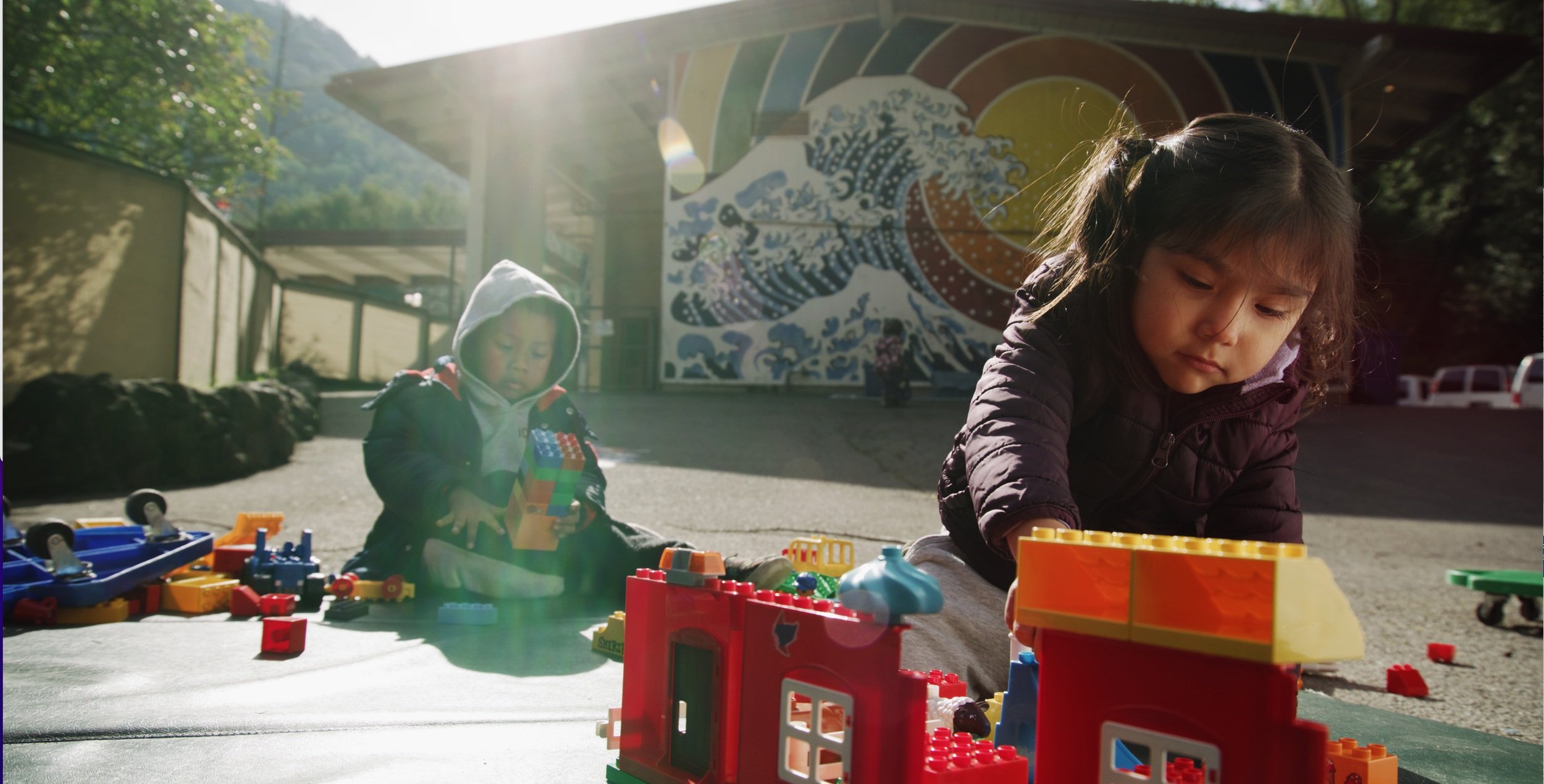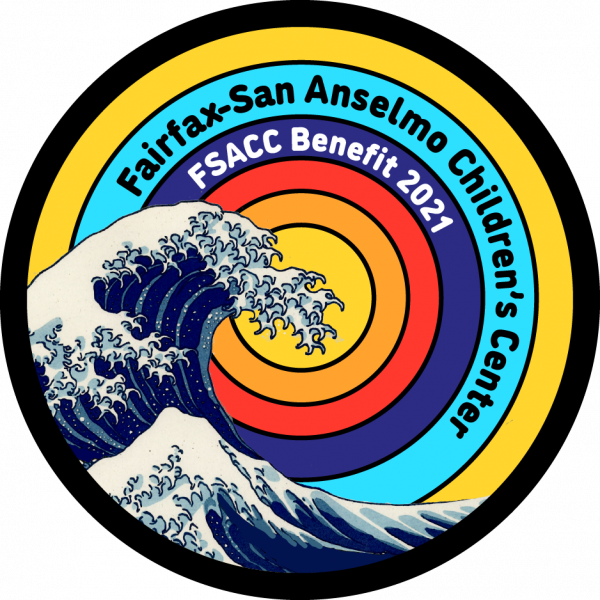
About FSACC
MISSION
Fairfax-San Anselmo Children’s Center (“FSACC”) provides high quality early care and education to children, supporting a diverse population of families and community. Our goal is to support and increase children’s school readiness skills while providing a safe and healthy learning environment, to enhance family well-being and foster parent leadership in our community. One of our core values as a center is to support the needs of working parents. We understand that for many parents, if they miss work, they don’t get paid. We are proud to uniquely serve the workforce in our community by operating 52 weeks per year. Our Infant/Toddler Program and our Pre-School Program is open from 8-5, Monday-Friday and our School Age Program is in session whenever the kids are on break from school. This includes the summer, Thanksgiving week (M-W), winter break, mid-winter break (Feb), and spring break (April) and of course the afternoons after school. We are only closed on the major US holidays.
HISTORY
Founded by legendary Ethel Seiderman in 1973 in response to a group of parents in Marin County who recognized the need for an affordable child care center. Ethel’s vision was for a place where local low to moderate income families could receive affordable child care and other desperately needed services, allowing families to further their education and work while knowing their children are being cared for in a healthy environment.
MODEL
We strive to provide a holistic approach to school readiness, provide a learning environment based in social justice, enhance family well-being and promote leadership within our Center’s community.
We are based on a play-centered curriculum. This is a hands-on learning approach for children, Play is an essential element of a high-quality, developmentally appropriate, early education program. Play benefits cognitive, social, emotional, physical, and moral development for all children.
We believe in the power of play as a natural and essential part of a child's learning process. Play allows children to explore, experiment, problem-solve, and engage in imaginative and creative activities. Our play-based curriculum provides hands-on experiences, encourages curiosity, and stimulates intellectual, physical, and emotional growth. Through play, children develop essential skills such as critical thinking, collaboration, and self-expression. There is a well-established consensus among early childhood professionals that play is an essential element of developmentally appropriate, high-quality early education programs. Play provides benefits for cognitive, social, emotional, physical, and moral development for children from diverse socio-economic, cultural, and linguistic backgrounds.
“Play is the highest expression of human development in childhood
for it alone is the free expression of what is in a child’s soul.” Friedrich Froebel
We recognize teachers as a vital force in the play-centered curriculum. Our teachers use keen observation to asses and support children’s learning and development through play. Teachers facilitate play through responsive interactions with children, based on an understanding of how play contributes to academic and social learning. They effectively use the power of children’s developing ideas, interests, and competencies to promote learning through different contexts of play, such as circle-time and small-group activities.
VALUES
Safe environment ~The Center believes in always promoting an inclusive, safe, kind, and responsible environment. These are critical elements to supporting students' emotional well-being, fosters optimal learning, develops social and emotional skills, cultivates a positive classroom culture, and prepares students for life beyond the classroom.
Community ~ Core to our success is the meaningful relationships we develop with children: At the Center, we recognize the importance of building strong and nurturing relationships with each child in our care. We understand that positive relationships lay the foundation for a child's emotional well-being, social development, and overall learning. By establishing a supportive and caring environment, we are able to foster trust, respect, and open communication between children, teachers, and parents. The teacher’s key role here at the Center is to support children’s learning and development by cultivating deep relationships with the children in their programs. We believe children learn best within the context of meaningful and established relationships that are based on mutual respect, recognition and cooperation. It is our belief that these relationships are not only necessary for cognitive and intellectual development but also critical to children being able to develop a sense of security, social competence, and positive self-concept.
Family well-being ~ In order for a child to thrive, the family needs to thrive. At the Center, we recognize that a child's well-being and development are deeply interconnected with the well-being of their family. We acknowledge that families play a vital role in supporting their children's growth and learning. The Children’s Center aims to create a strong partnership with families by offering resources, guidance, and opportunities for involvement. At FSACC, we understand that by supporting and empowering families, we foster a nurturing and enriching environment that benefits both children and their families. To describe our Center as “day care” would be an injustice to the children, teachers, staff, and families who have been a part of our Children’s Center community since its inception back in 1973. We recognize the need to provide services to both the children and the family, accomplished by providing quality childcare, offering parent workshops that address a host of needs, and building a sense of community, leading to the strengthening of the family unit forming the foundations that can take a family at risk, to thriving.
